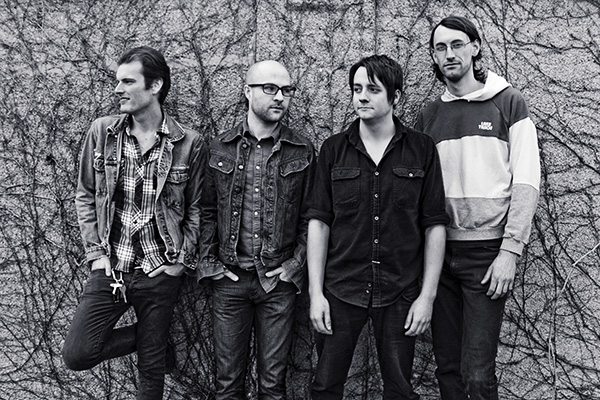
INTERVIEW: BIG SCIENCE (CHICAGO)
On an overly heated day in Chicago’s Logan Square I sat down with Chicago band, Big Science, who have been making headlines since the release of the first EP in 2008, The Coast of Nowhere. Over a few beers, and some surprise champagne, we discussed their new album, Difficulty, and the music industry. We also live instagram’dthe whole thing. You can check out the photos here, and follow our instagram (@mezzic) for more. Be sure to check out Big Science, Saturday July 28th on the south stage at Chicago’s Wicker Park Fest at 4:30pm, I promise you wont be disappointed. We also bonded over our shared love of Jazz, Sam Cooke specifically, dinosaurs, and what to do if a hooker shows up with a pizza at your recording studio space. Alas, when your interview takes place outside in Logan Square, some things get a little muffled. Here is what didn’t.
How does it feel to have your first full length, “Difficulty” finally out?
Bob: We had a somber beer and malört at the Bob Inn across the street from the studio.
J. Hendrix: It feels very good to have it out. It was a bit of a trial recording this record. We basically lost a member near the beginning, basically right before we started recording it. It turned out better in the long run, for both parties. It was an interesting process, because it was us having to re-evaluate how we wrote. It was a long process, but rewarding in the end.
Bob: At the CD release show at the end, that was like the happiest I’ve felt for like a year…or a year and a half.
J Hendrix: Exactly. Got off stage and stated dancing for like 20 mins.
Has William Logan played any other part in the album other than the title, “Difficulty”?
J. Hendrix: It would be awesome if he sang back up vocals. No, umm… just the title of it. It was the first book of any kind of poetry and actually resonated with me when I was younger. The name also describes the kind of aura that worked around the recording. Not that it was difficult, we all get along. It was a string of things, like we were loosing members, and I don’t believe in curses, but it was like, what the hell is going on here?
“Difficulty” opens with this dream like, melancholy, make-out track, “All the heat has escaped”, followed by, “American Gravity” where you start to give the listener a different direction. What was the choice in enticing them in two different directions from the start?
Bob: Our space-mate, Matt heard that song and referenced how Radiohead closed In Rainbows with “Videotape”, and there was a conversation about wanting to put that as the first track on the record. And we were kinda thinking it was a good way to go, cause the idea was already there. I like it, it’s a great way to start a set too, when we’re playing live.
J. Hendrix: I think also, if you’re listening to it in the digital format or on the CD the first and the last song are different, but they fit well. They are both that dark, melancholy feel.
“No One Ever Wakes Up” is this poppy pessimistic song, yet it makes me happy. Was there an intention to make this upbeat song?
J.Hendrix: Anything I say aren’t necessarily decisions that we make when we are making songs. It just kind of developed like that, and later on you look at it and say, “Oh, so that’s what was going on there.” But I mean The Pixies are so awesome. They have really poppy song writing but then there is this weird shit in there. There are these bizarre lyrics, and then there is this moment of noise. If gets under your skin in the same way, it’s like curled pop. It’s a fun song to play. The act of playing music is so pleasurable. The contents could be the darkest, most sad contents on earth, but you’re doing something really fun and amazing.
How do you feel the band, the songs, and the overall pathos has changed since the release of, “The Coast of Nowhere” in 2008 to “Difficulty”?
Bob: I’ve known the Jason’s for about 7 years now. I went on my first tour in my first kind of rock band, so I got to see the progression from their old band, The North Atlantic, into a move across the country turn into for what I believe one of the best EPs to come out of this town, and that is, The Coast of Nowhere. I believe that. I never stop listening to that, I really enjoy it. You think like, “Oh, man. Did I do it right? Did I help out where I was supposed to help out?”, and I like to think that I add something to it.
Both Jasons: (in unison) Absolutely.
Bob: It’s a crazy experience being able to play with a band that you really have admired for so many years.
J.Hendrix: You’re like musical gravy. Bob Buckstaff is like musical gravy in everything he does. Bob Buckstaff is like professional poop polisher. You can have the crappiest song, and he’ll make it work.
“Loose Change Century” is a track that pretty much everyone in your generation can relate yo. How important is it to you that your music resonates with the current generation?
J.Hendrix: I didn’t feel part of my generation was ever the current generation. I mean I guess I was, cause I was there. I’ve always liked music that was a little older than me, for me personally. Obviously I would hope that it has the universal quality to it. It’s kinda like confessional poetry, the more intimate, and the more personal, the more universal. I don’t know if that works, but that’s how I feel about it.
CJ: The main thing for me is, I try to stay in the loop as much as possible. But what we really want to know it how do the kids get the drugs?
From a 14 yr old with a sidekick.
CJ: Oh yeah, that’s good stuff, right there.

How was recording the album on your own, and putting it out on your own?
Bob: Recording the album on our own was good, it took a long time, but it was good. We didn’t go in and start recording all these songs we had written, we wrote as we recorded them. So it took a while, and it was a way we hadn’t written before. It was more piecing it, like someone would do something, and the next day we’d put something over it. I’d be at work, and someone would come in and add vocals, and that.
J.Richards: Everything just kinda happened when it was supposed to happen. It was a lot of hard work in terms of making sure everything was in order.
J.Hendrix: It’s kinda funny the kind of music that gets written about in places like Pitchfork, or other things like that. It’s kinda sold as all these narratives, and it’s interesting like these people come out of no where. Then you realize that there s this gigantic PR machine behind people, and it’s hilarious that people still believe in that kinda weird, idea that someone records this record from their heart. Obviously we wouldn’t mind being on a label, but we wanna do it right.
Bob: It’s very necessary now to put your band into a context that doesn’t have anything to do with the music itself.
J.Hendrix: Like a brand?
Bob: Yeah it’s all about branding. When a kid goes to your website, before they press play on anything, they are going to go to a video first. There has to be a 14 page bio constructing some strange story about meeting in Juneau, Alaska. Then there is a music video for every song, then everything is remixed by Apex Twin. It’s a completely different world, and those things are great, but you have to have a mind for it. It’s an interesting thing to put your music
CJ: The reason I’m not in music business school is because there is nothing more difficult that booking shows, and getting the word out. If we didn’t have the responsibility, I would feel a lot less stress.
What can people who have never seen you perform live expect to see at your Wicker Park Festival performance?
CJ: Lack of drügz.
Bob: We actually have a fifth member who is a vanitas artist, and there will be massive piñatas on stage, full of meat.
J.Hendrix: We are very, very, very good live.
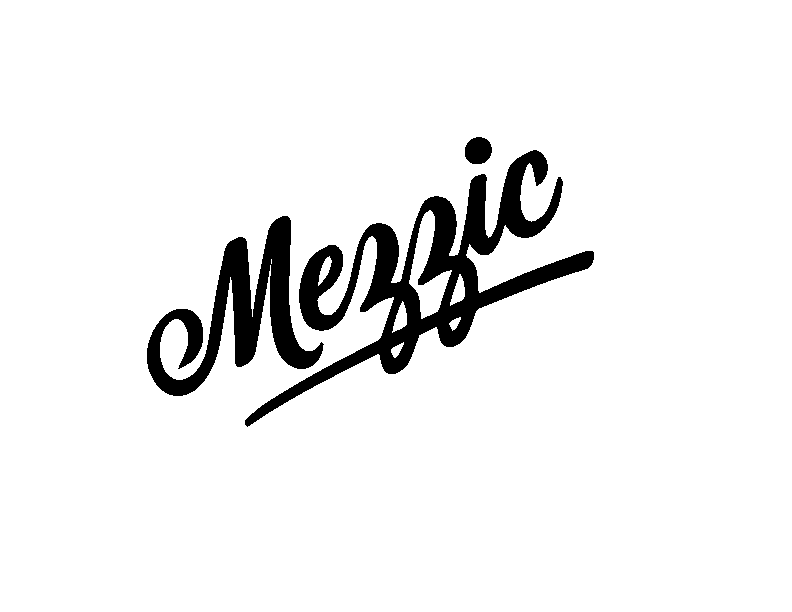
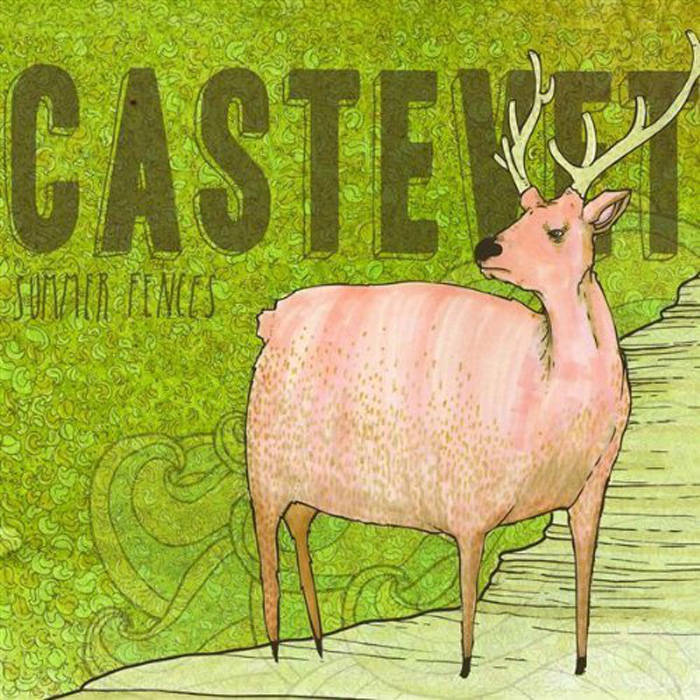
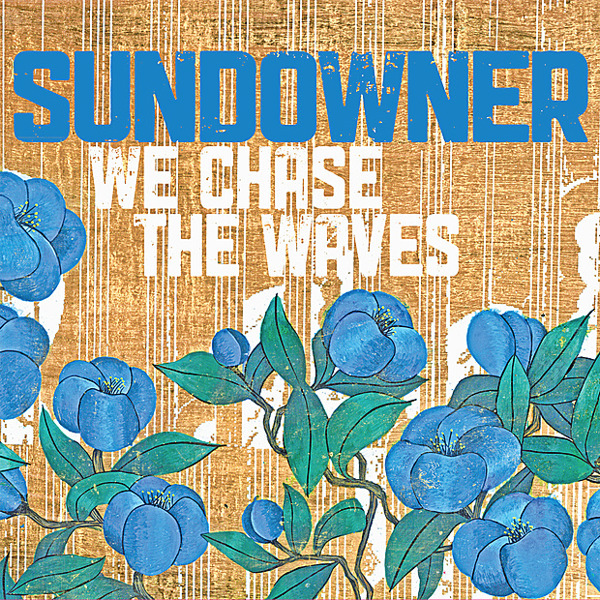
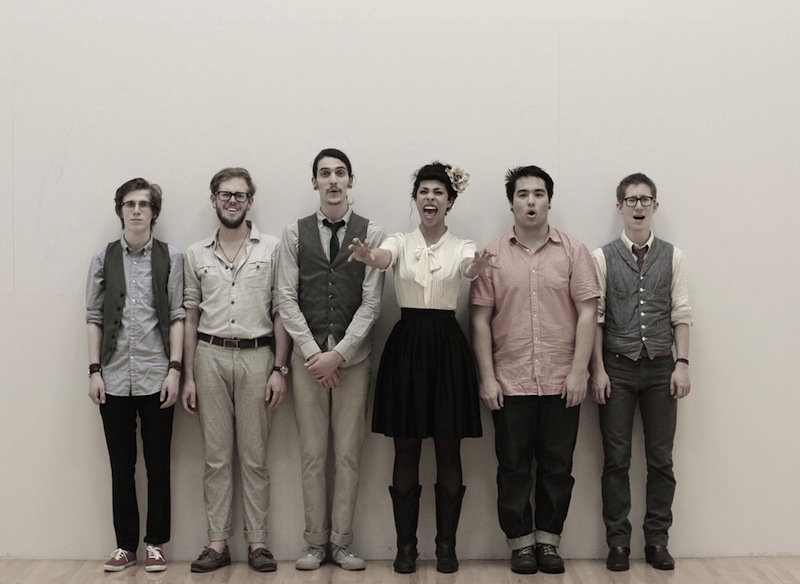
Post a comment